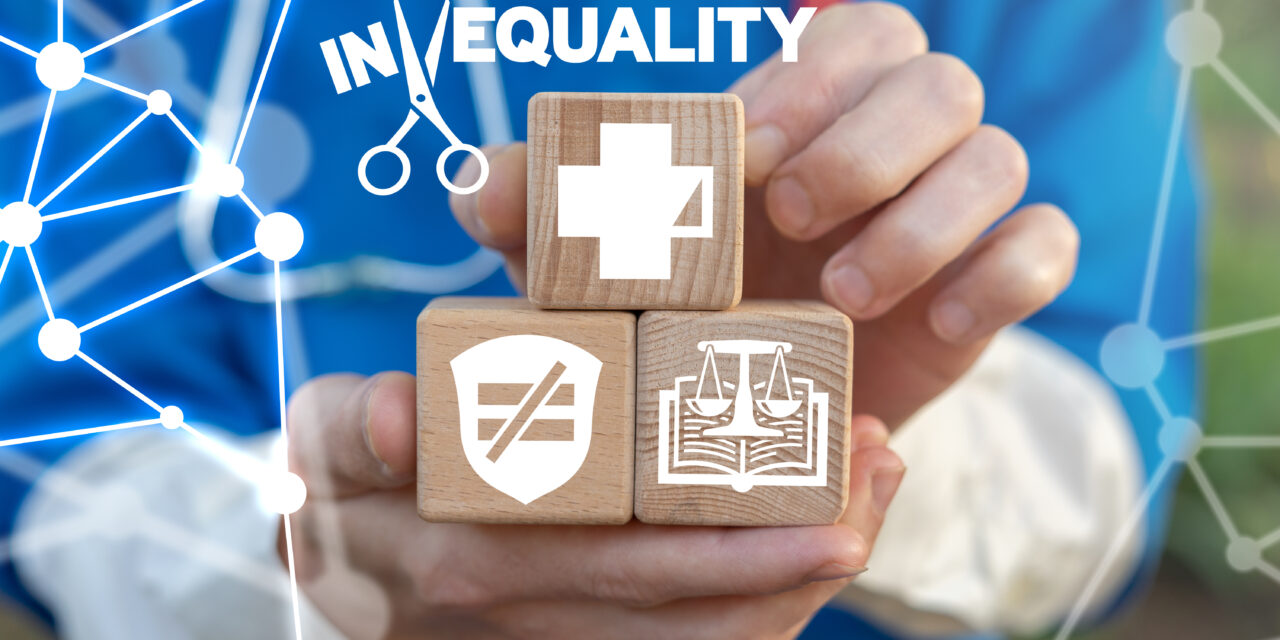
Health inequalities might seem like another NHS buzzword that everyone is talking about. But what does it really mean and why does it matter for innovators in particular? In this latest blog, Fiona Campbell, Programme Manager for our industry team explores the importance of health inequalities for the NHS and outlines why innovators should be thinking about their role in addressing this system-wide challenge.
What do we mean by health inequalities?
Anyone working in or with the NHS will be hearing the term “health inequalities” on a regular basis as it is a huge priority area. In short health inequalities refers to any difference in health between different populations and groups within society that could be reasonably avoided, for example a product or service that is more easily accessed by men than women. The King’s Fund helpfully provides further information on health inequalities here.
Why do health inequalities matter for the NHS?
The purpose of the NHS is to provide universal access to healthcare, and this includes addressing variations in healthcare that could be avoided, taking into account the social and economic environments in which people live.
In the last few years, life expectancy has grown by 10% for the most affluent but has stalled and even fallen for the most deprived 10%. Coronavirus (COVID-19) has further highlighted the impact of not addressing these inequalities with those who already faced the worst health outcomes being significantly disproportionately affected by the pandemic.
It’s perhaps unsurprising therefore that the NHS Long Term Plan includes a strong focus on taking a concerted and systematic approach to tackling health inequalities. Companies who are looking to work with the NHS must have health inequalities in mind if they are to form successful partnerships in healthcare.

The NHS approach to reducing inequalities
Core20PLUS5 is a national NHS England and NHS Improvement approach to reduce inequalities and both national and system level. The Core20 part of the approach targets the most deprived 20% of the national population. The PLUS part focuses on addressing local population groups who are experiencing poorer than average health access, experience or outcomes (as selected by the Integrated Care System responsible for a given area). Meanwhile the 5 refers to five clinical areas requiring accelerated improvement. These areas differ for adults and for children and young people.

What aspects of health inequalities should innovators be thinking about?
When thinking about health inequalities in relation to your product or service, it is useful to consider any areas where you might have a positive impact on reducing health inequality. For example designing a product that people can easily access from their own homes will reduce the need for travel and therefore make it more accessible to a wider section of the population.
On the contrary, you should also consider whether there is any element of your product/service that might increase inequality. One example of this is if your product/service can only be used by people with a high level of English literacy. You should also give some extra consideration to how your product or service might address the core five clinical areas either for adults or children and young people.
Finally, many companies only consider areas where they might not be making existing inequalities worse e.g. by providing large fonts or having some level of translation into other languages. While these efforts are a good starting point, much more needs to be done to truly reduce health equalities. A focus on addressing health inequalities will not only help you to contribute to meeting targets, but will also help you to stand out from other innovations. We can help you get thinking about health inequality from the outset.
“Companies who are looking to work with the NHS must have health inequalities in mind if they are to form successful partnerships in healthcare.”
Fiona Campbell, Programme Manager , KSS AHSN
How can the Kent Surrey Sussex Academic Science Health Network (KSS AHSN) help you?
Me and my team at KSS ASHN can help you to understand how you and your product/solution can maximise your ability to make a difference to people most affected by health inequalities. We can also help you to understand how to mitigate areas where you might be increasing inequalities, even if unintentionally.
For 10 years, we’ve helped many innovators like you to navigate the challenging web of health inequalities and to form strong partnerships with the NHS. Get in touch to learn more about how we can work together.





